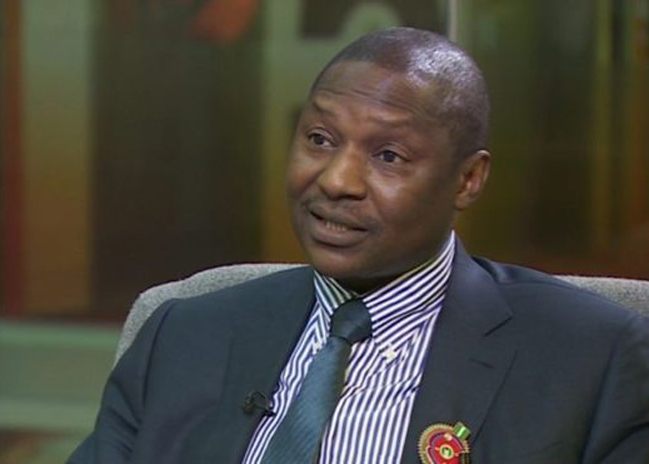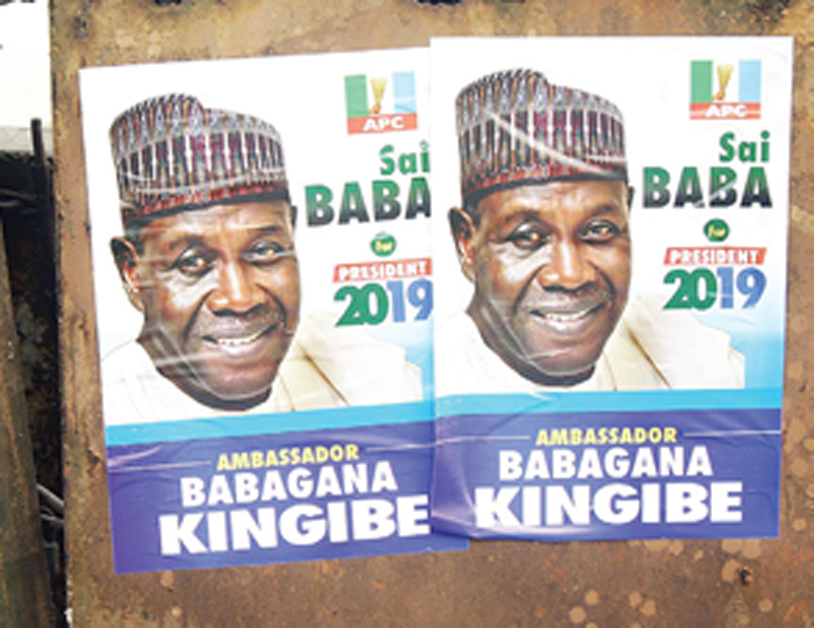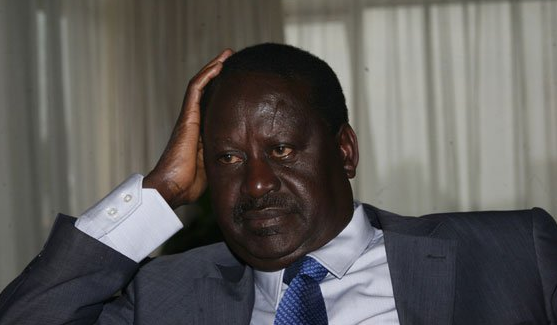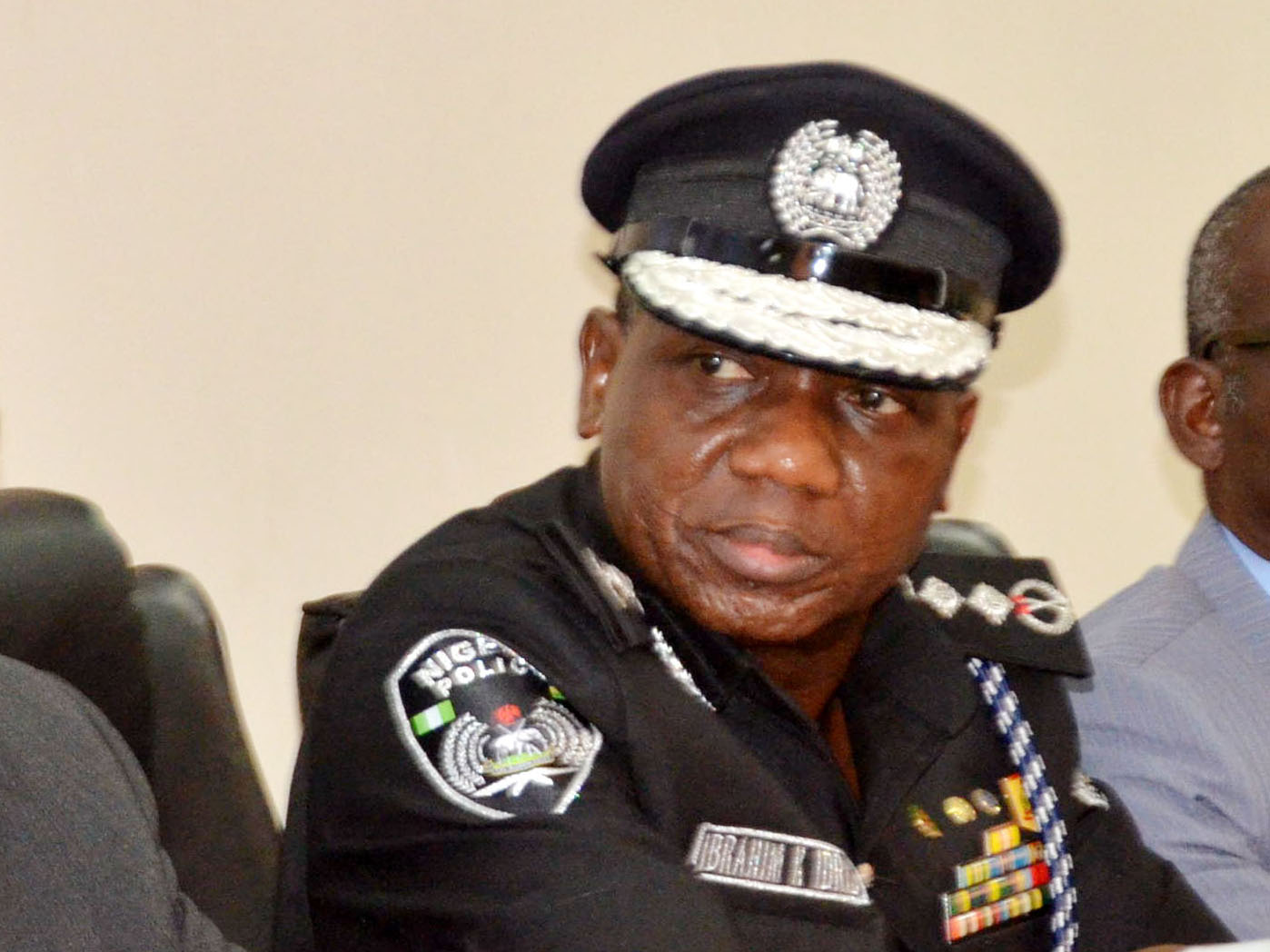Abubakar Malami, attorney-general of the federation (AGF), has advised President Muhammadu Buhari that Nigeria should have a stake in the prolific OPL 245.
The oil block, considered to be the richest in Africa, was awarded to Malabu Oil & Gas Ltd in 1998 and after a series of controversy, Malabu sold 100% to Eni (Agip) and Shell.
An estimate says OPL 245 holds reserves of 9.3bn barrels of crude oil and gas reserves.
In a letter dated September 15, 2017 and seen by TheCable, Malami said the president should take advantage of clause five and 11 of the deal so the country could acquire a stake in the oil block.
Advertisement
Under his proposal, it will be converted to a production sharing contract (PSC) between the Nigerian National Petroleum Corporation (NNPC) and Eni/Shell.
This would involve a negotiation with ENI and Shell on the cost of entry of NNPC into the deal, he said.
Malami advised the president that it is better to avoid “acrimonious litigations” because of high legal fees and the dormancy of the OPL 245 which would not be of use to anyone while cases are in court.
Advertisement
Ibe Kachikwu, minister of petroleum resources, has also advised Buhari that Nigeria “should take advantage” of the situation to acquire a stake.
Malami said the nine-count criminal charges preferred against Mohammed Adoke, ex-AGF, and Dan Etete, a former minister of petroleum resources, by the Economic and Financial Crimes Commission (EFCC) are “unsustainable.”
He has written a similar letter to the EFCC over the charges, insisting that there is no evidence for diligent prosecution.
In his letter to Buhari, Malami wrote: “Your Excellency, you may wish to note that the only way out to consider renegotiating the agreement is to take advantage of the terms of the agreement under clauses 5 and 11 to acquire a stake in OPL 245 converting it to a PSC between FGN/NNPC, SHELL and AGIP after negotiating with ENI/SHELL to absorb the cost of FGN/NNPC entry under the said clauses five and 11 through the PSC mechanism.
Advertisement
“ENI/ SHELL claim to have invested in excess of US$ 2.5 billion in OPL 245 from 2011 to date and as such would seek the protection of international law, including applicable investment treaties which prohibit the unreasonable, unfair and inequitable treatment of their investments and could expose the FGN to international arbitration involving multi-billion dollars claims.
“In the criminal case, the aggrieved parties through their lawyers petitioned the EFCC against some directors at Malabu Oil and Gas alleging fraudulent divestment of their shares and subsequently depriving them of their benefits in the sale of OPL 245.
“EFCC investigated the case and filed a 9-count charge dated 16th September, 2016. Attached to the charge is a proof of evidence, case summary and list of witnesses in support the counts which bother on fraud, conspiracy and money laundering.
“Regarding the criminal charge, your excellency is invited to note that the charge as presently constituted may most likely not succeed against the parties for the following reasons.
Advertisement
“There is nothing to show that the parties as constituted were at all times working together and having ‘meeting of the mind’ to wit to forge CAC documents and use some for the purpose of divesting the shares of the complainants and thereafter enter into a settlement agreement with FGN and other parties to take delivery of the proceeds of sale OPL 245.
“There is also nothing in the proof of evidence to support the charge money laundering and it is therefore impossible for the prosecution prove the elements which include illicit funds, transfer for such through various channels to reintroduce same again into the regular financial system as legitimate funds in financial institutions etc. Without the express proof of these elements, the count may not be sustained on the premise of the attached proof of evidence.
Advertisement
“The EFCC investigation and attached proof of evidence do not appear to have clearly revealed the case of fraud against the parties who claimed to have acted in their official capacities with the approval of three consecutive presidents of the federal government of Nigeria at the time with further claim that the matter was intended to be resolved in national interest thereby saving the nation acrimonious litigations resulting into high legal fees and the dormancy of the oil field while litigation lasted.
Malami said if the federal government reneged on agreements as regards the deal, the country would be perceived “as one which does not honour its commitments.”
Advertisement
He warned that such could scare investors away.
OPL 245 was revoked from Malabu in 2001 by President Olusegun Obasanjo and awarded to Shell same year, but was revoked again in 2006 and returned to Malabu following an out-of-court settlement.
Advertisement
President Goodluck Jonathan finally restored the block to Malabu in 2010 in a $1.3 billion deal.
But the deal has become a subject of litigation as Shell and ENI paid $1.1 billion to acquire the field from Malabu and $210 million to the federal government as signature bonus.
Both payments were made to a federal government account, leading to suspicion that Shell and ENI did not want to be directly involved with Malabu because of corporate governance issues.
TheCable recently reported that the two principal stakeholders in the acreage are proceeding with its development of the main oil field already discovered.
The two oil giants has taken the final investment decision (FID) to develop the field known as Zabazaba field, whose development project is estimated at $13.5 billion.
Add a comment







